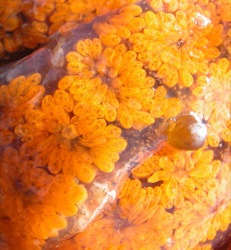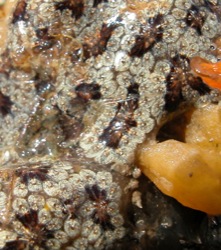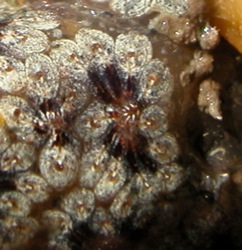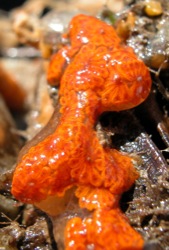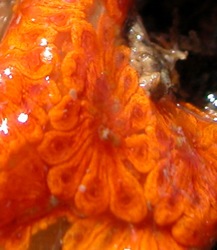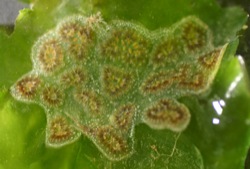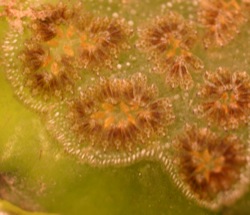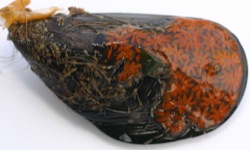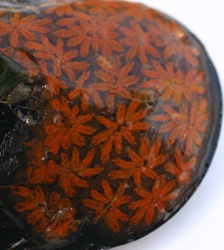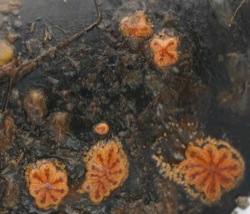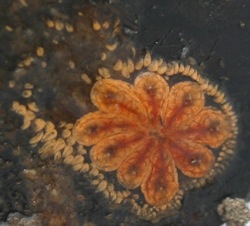Botryllus schlosseri Image 9-dark orange on mussel
A
Botryllus schlosseri colony with dark orange zooids, growing on a bay mussel (
Mytilus trossulus/
galloprovincialis complex) in San Francisco Bay.
Return to Top
Botryllus schlosseri Image 8-detail of white, tan & yellow
Detail of colony in previous photo. Note the small white blobs arranged like beads around the outer rim of the colony, which are the pigmented ends of blood vessels.
Return to Top
Botryllus schlosseri Image 7-white, tan & yellow
A
Botryllus schlosseri colony with white, tan and yellow zooids, growing on a sheet-like green seaweed (Ulva sp.) in San Francisco Bay.
Return to Top
Botryllus schlosseri Image 6-detail of previous orange
Detail of previous photo showing a system made up of 12 zooids. Note the oral apertures, appearing as darker orange pores in the teardrop-shaped zooids.
Return to Top
Botryllus schlosseri Image 5-orange from SFBay
A
Botryllus schlosseri colony with orange zooids from San Francisco Bay.
Return to Top
Botryllus schlosseri Image 4-detail of white & black
Detail of previous photo showing a system made up of 12 zooids. Note the red-tinted oral apertures on the top surfaces of the white zooids, and the opening in the center of the system where water exits the colony.
Return to Top
Botryllus schlosseri Image 3-white & black
A
Botryllus schlosseri colony with white and black zooids, growing over the surface of a solitary tunicate (probably
Ascidia sp.) in San Francisco Bay.
Return to Top
Botryllus schlosseri Image 2 & Key
Detail of colony in previous photo.
Return to Top
Botryllus schlosseri Image 1-orange from SFBay
A
Botryllus schlosseri colony with orange zooids from San Francisco Bay.
Return to Top
Botryllus schlosseri Pallas, 1766
STAR SEA SQUIRT, GOLDEN STAR TUNICATE
Botryllus schlosseri is
a colonial sea squirt that typically forms flat sheets 3-4 mm thick and up
to 10 cm across. Colonies that overgrow narrow-bladed seaweeds may appear
lobate, and colonies growing in stalked, fleshy lobes have been reported
in southern Australia.
Return to Top

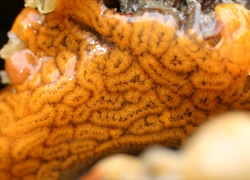 Botrylloides violaceus
Botrylloides violaceus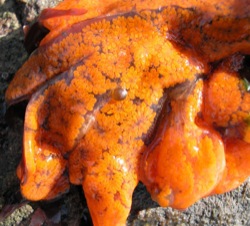 Botryllus schlosseri
Botryllus schlosseri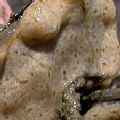 Didemnum sp. A
Didemnum sp. A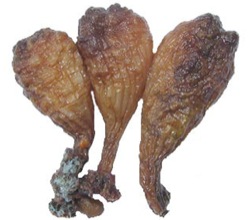 Styela clava
Styela clava